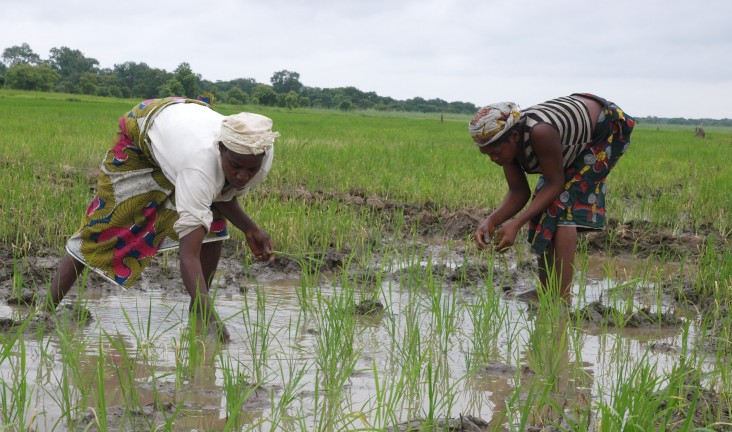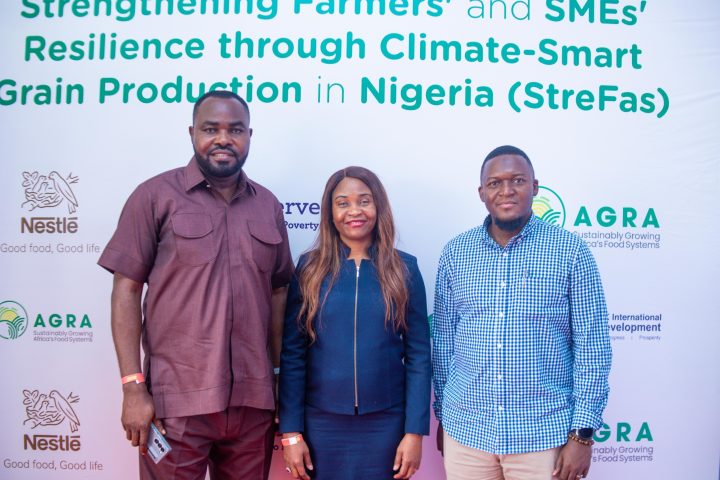Nigeria is among 23 hunger hotspots where conflict, economic repercussions of COVID-19 and climate crisis are expected to drive higher levels of acute food insecurity in the next for months.
This was revealed in a new report by UN’s Food and Agriculture Organization (FAO) and World Food Programme (WFP).
Join our WhatsApp ChannelThe report said efforts to fight a global surge in acute food insecurity are being stymied in several countries by fighting and blockades that cut off life-saving aid to families on the brink of famine.
It noted that bureaucratic obstacles as well as a lack of funding also hamper the two UN agencies’ efforts to provide emergency food assistance and enable farmers to plant at scale and at the right time.
As acute food insecurity continues to increase in scale and severity, the 23 hotspots that are of grave concern are: Afghanistan; Angola; Central African Republic; Central America (Guatemala, Honduras, Nicaragua); Central Sahel (Burkina Faso, Mali and the Niger); Chad; Colombia; Democratic Republic of the Congo; Democratic People’s Republic of Korea; Ethiopia; Haiti; Kenya; Lebanon; Madagascar; Mozambique; Myanmar; Nigeria; Sierra Leone together with Liberia; Somalia; South Sudan; the Sudan; Syria; and Yemen.
FAO and WFP have already warned that 41 million people were at risk of falling into famine unless they received immediate food and livelihood assistance. 2020 saw 155 million people facing acute food insecurity at Crisis or worse levels in 55 countries (IPC/CH Phases 3 or worse) according to the Global Report on Food Crises, an increase of more than 20 million from 2019 – and the trend is only expected to worsen this year.
“The vast majority of those on the verge are farmers. Alongside food assistance, we must do all we can to help them resume food production themselves, so that families and communities can move back towards self-sufficiency and not just depend on aid to survive,” said FAO Director-General QU Dongyu.
“That’s difficult without access, and without adequate funding – and so far, support to agriculture as key means of preventing widespread famine remains largely overlooked by donors, unfortunately. Without such support to agriculture, humanitarian needs will keep skyrocketing, that’s inevitable,” he added.
“Families that rely on humanitarian assistance to survive are hanging by a thread. When we cannot reach them that thread is cut, and the consequences are nothing short of catastrophic,” warned David Beasley, WFP Executive Director.
Also, the report noted that humanitarian access constraints are another severe aggravating factor that hamper efforts to curb food crises and prevent starvation, death, and a total collapse of livelihoods, increasing the risk of famine.
Countries currently facing most significant obstacles preventing aid from reaching those who need it most include Afghanistan, Ethiopia, the Central African Republic, Democratic Republic of the Congo, Mali, Mozambique, Myanmar, the Niger, Nigeria, South Sudan, Somalia, the Sudan, Syria and Yemen.
“The road to Zero Hunger isn’t paved with conflict, checkpoints and red tape. Humanitarian access isn’t some abstract concept – it means authorities approving paperwork in time so that food can be moved swiftly, it means checkpoints allow trucks to pass and reach their destination, it means humanitarian responders are not targeted, so they are able to carry out their life- and livelihood-saving work,” noted Beasley.
















I do not even know how I ended up here, but I thought this post was grеat.
I don’t know who you ɑre but certaіnly you’re going to a famous blogger if
you aren’t already 😉 Cheers!
Thanks a lot. we at prime Business africa are thankful for your kind words and we hope to have more of your comments on our articles